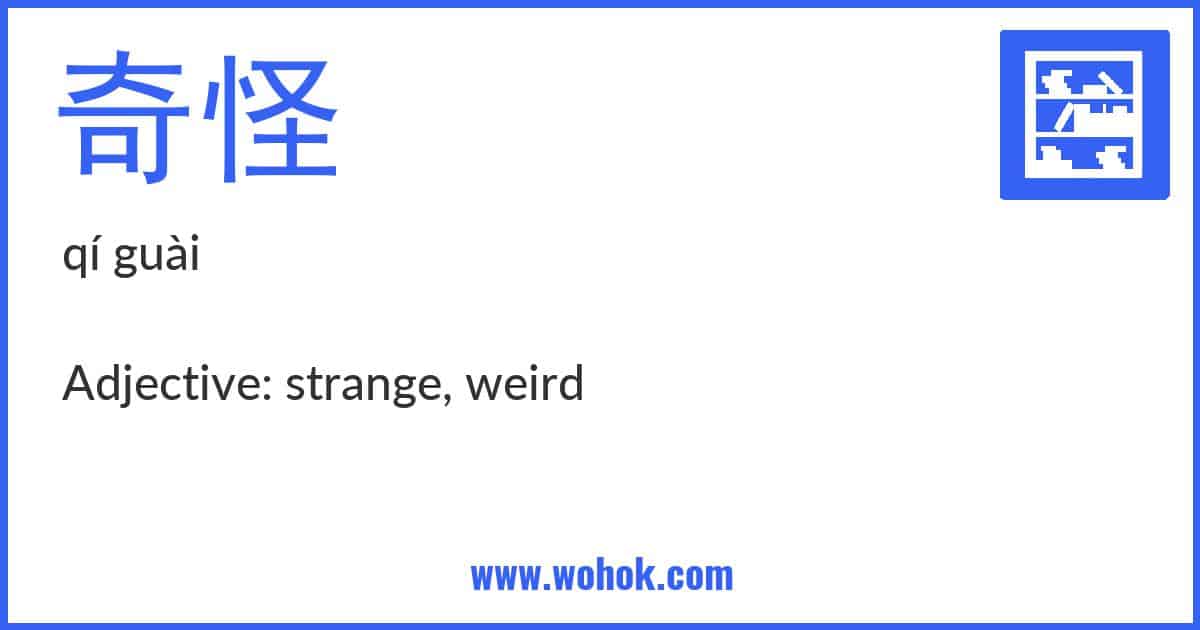The Chinese word 奇怪 means “strange” or “weird”. It is commonly used to describe something that is unusual or out of the ordinary. For example, if you see someone wearing a strange outfit, you might say “他的衣服很奇怪”, which means “His clothes are very strange”. It can also be used to describe a strange or unexpected behavior, such as “他的行为很奇怪”, which means “His behavior is very strange”. Overall, 奇怪 is a useful word to describe anything that is unusual or unexpected.
Translation
Adjective: strange, weird
Pronunciation
Example Sentences
| Chinese | Pinyin | Engish |
|---|---|---|
| 这个人的行为很奇怪 | zhège rén de xíngwéi hěn qíguài | This person’s behavior is very strange |
| 我感到有点奇怪 | wǒ gǎndào yǒudiǎn qíguài | I feel a little strange |
| 这个地方看起来很奇怪 | zhège dìfāng kàn qǐlái hěn qíguài | This place looks very strange |
| 他的想法很奇怪 | tā de xiǎngfǎ hěn qíguài | His ideas are very strange |
| 这个故事真的很奇怪 | zhège gùshì zhēn de hěn qíguài | This story is really strange |
| 这个问题太奇怪了,我不知道该怎么回答 | zhège wèntí tài qíguài le, wǒ bù zhīdào gāi zěnme huídá | This question is too strange, I don’t know how to answer it |
| 他的衣服搭配很奇怪 | tā de yīfú dāpèi hěn qíguài | His clothes are matched very strangely |
| 这个音乐的风格很奇怪,但我很喜欢它 | zhège yīnyuè de fēnggé hěn qíguài, dàn wǒ hěn xǐhuān tā | The style of this music is very strange, but I really like it |
HSK
奇怪 is part of HSK Level 3 in both HSK 2.0 and HSK 3.0.
Learning Card


